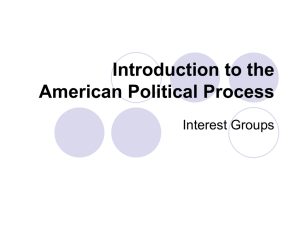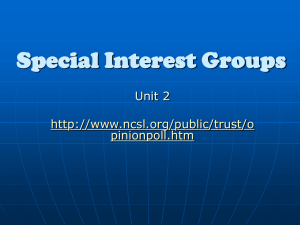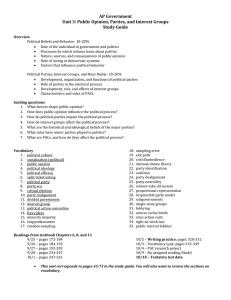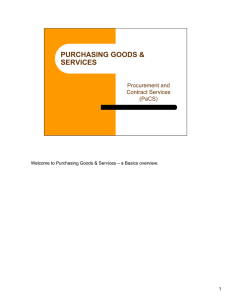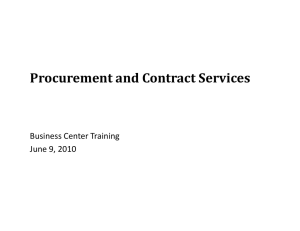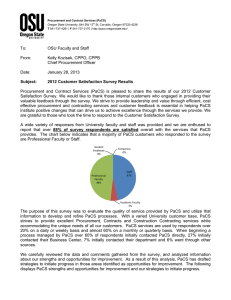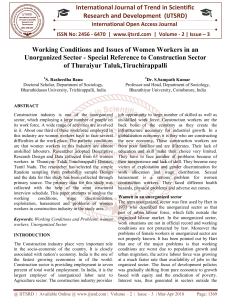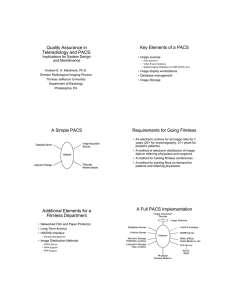Introduction to the American Political Process Interest Groups
advertisement
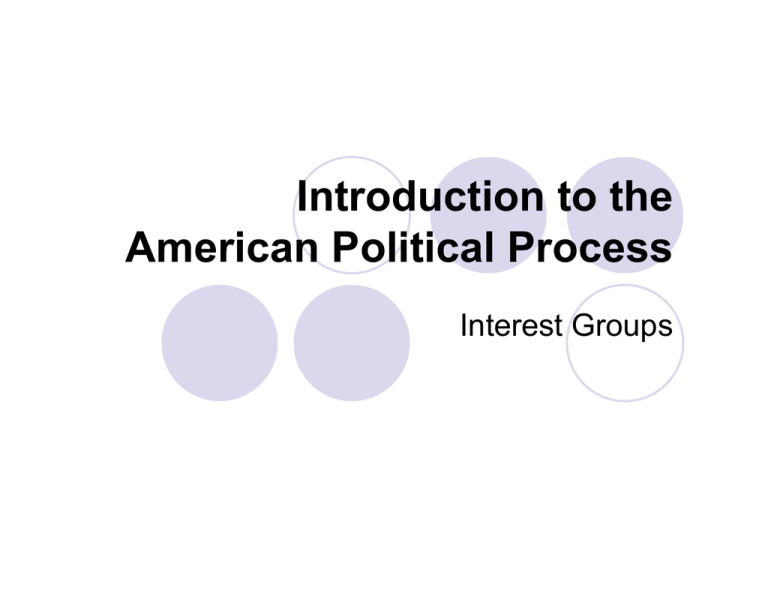
Introduction to the
American Political Process
Interest Groups
Interest Groups: An Overview
z
z
z
z
Definitions and myths
Formation
Resources and Strategies
Bias: Equality and Intensity
Interest Groups: Definitions and Myths
zDefinition:
{An organized body of individuals who share
some political goals and try to influence a public
policy decision
zLobbyists, special interests, factions.
zWhy is “Special Interest” a dirty word?
{The prevalence of conflict
Interest Group Formation
zSome interests are organized, others
unorganized. Why?
zOlson: Collective action problem
{Collective goods vs. selective benefits
zExcludability
zIndividual vs. collective interests
{Free-rider problem
zSize
zSelective Incentives
Group Formation
zHow do groups form?
{The importance of leadership
{Entrepreneurs
{Social movements
zTipping points
{Potential problems
Resources
zDiversity of resources
{Group characteristics
zNumbers: AARP
zCohesion: ACT-UP vs. TAG
{Information and Expertise
{Social Status
Interest Group Strategies
zResources determine strategy
zDirect action strategies
{Legal Strategies
z1930s-1950s: NAACP Legal Defense Fund
z1990s: Tobacco
zLimits: Galanter and Kritzer
{Agency Contact
{Contacting Representatives -- Lobbying
Total PACs
4500
4000
3500
3000
PACs
2500
2000
1500
1000
500
0
1974 1975 1976 1977 1978 1979 1980 1981 1982 1983 1984 1985 1986 1987 1988 1989 1990 1991 1992 1993 1994 1995 1996 1997 1998
Year
Top Twenty PACs in Contributions to Federal Candidates, 1997–1998
1
2
3
4
5
6
7
8
9
10
11
12
13
14
15
16
17
18
19
20
Realtors Political Action Committee
Association of Trial Lawyers of America Political Action Committee
American Federation of State County & Municipal Employees- PEOPLE,
Qualified
American Medical Association Political Action Committee
Democratic Republican Independent Voter Education Committee
Dealers Election Action Committee of the National Automobile
UAW-V-CAP (UAW Voluntary Community Action Program)
International Brotherhood of Electrical Workers Committee
on Political Education
National Education Association Political Action Committee
Build Political Action Committee of the National Association of Home Builders
Committee on Letter Carriers Political Education (Letter Carriers Political
Action Fund)
Machinists Non-partisan Political League
NRA Political Victory Fundrs’ Association Political Action Committee
United Parcel Service of America Inc Political Action Committee
United Food & Commercial Workers, Active Ballot Club
American Federation of Teachers Committee on Political Education
Laborers’ Political League-laborers’ International Union
Carpenters Legislative Improvement Committee, United Brotherhood of
Carpenters & Joiners of America
National Association of Life Underwriters Political Action Committee
National Beer Wholesale
$2,474,133
2,428,300
2,374,950
2,336,281
2,183,250
2,107,800
1,915,460
1,884,470
1,853,390
1,807,240
1,760,496
1,637,300
1,633,211
1,527,149
1,505,951
1,415,400
1,413,850
1,336,000
1,301,719
What do Lobbyists Do?
z99% Testify at Hearings
z92% Present research results or technical
information
z85% Help draft legislation
z58% Make financial contributions to
candidates
z24% Contribute work or personnel to
electoral campaigns
Interest Group Strategies (cont.)
zGrassroots Lobbying
{“Outsider strategy”
{Work through constituents
{Advantages and disadvantages
Interest Groups and Bias
zMembership bias
zOrganized and unorganized interests
Conclusions
zWhat is the place of Interest groups in
America?
{Multiplicity of interests
{Interest groups channel interests and
preferences
{Intensity vs. Equality
